Table of Contents Show
The RV 10-year rule is one of those rules that you either love or hate. If you see any online RV community members discussing it, grab your popcorn because things are about to get interesting. Don’t worry if you’re unfamiliar with the RV 10-year rule. Today, we’ll share everything you need to know about it.
Let’s get started.
What Is the RV 10-Year Rule?
Over the years, some campgrounds, mostly RV parks, began implementing a rule prohibiting RVs older than 10 years from using their facilities. It often doesn’t matter what type of RV you use. You’ll need to find somewhere else to park if it’s older than 10 years. You’ll likely see these rules more in private campgrounds and RV parks, not ones managed by county or state officials.
RVs are crazy expensive, and the loan terms can sometimes last 15 to 20 years. This could mean RVers still have several years left until paying off their rig, but they can’t use it in some spots. Talk about frustrating!
Why Does the 10-Year Rule Exist?
The 10-year rule helps maintain a certain atmosphere at a camping location. The locations that enforce the 10-year rule are typically RV parks that cater to a higher class of RV clientele. When customers pay over $250,000 for their RVs, they don’t want to look out their window and see Cousin Eddie’s RV parked next to them.
It’s also important to remember that RVs don’t have the same quality craftsmanship as residential homes. It’s common for RVs to face issues and for things to break, especially the older they get.
Campground owners don’t want RVs with leaks or electrical issues to reside in one of their campsites. These types of rigs can cause quite a headache for the management.
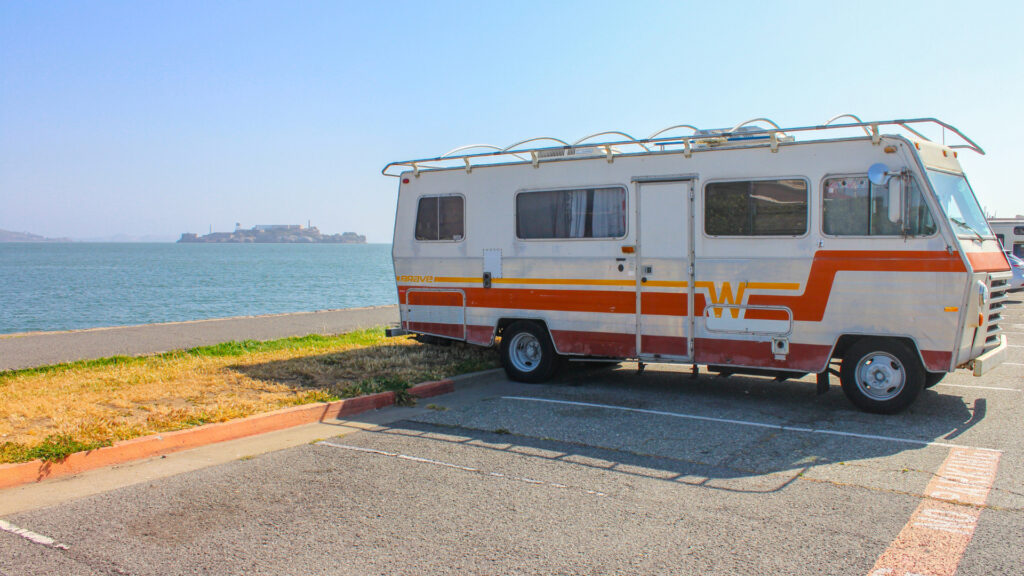
Is the RV 10-Year Rule Legal?
Campgrounds that enforce that 10-year rule are private businesses. As such, private businesses have the right to refuse services to anyone, especially individuals who might affect other customers’ experiences. So while we might not like that parks limit usage based on the age of an RV, they’re well within their legal rights to do so.
Are There Exceptions to the RV 10-Year Rule?
Many RV parks have the 10-year rule on their list of regulations but only enforce it in extreme circumstances. Chat with the management before making a reservation if you see a campground has a 10-year rule. If your rig is in decent condition, they may make an exception for you.
Approach the situation with a good attitude, no matter how angry you feel about the rule. Treating the campground management rudely won’t improve your chances of them granting you an exception. Being respectful and courteous can go a long way in convincing the owners to let you stay.
How Do You Get Around the 10-Year RV Rule?
If an RV park or campground does enforce the 10-year rule, you can likely get around it. Some work better than others, and some require you to compromise your morals. However, it is possible to bypass the rule in some instances.
Don’t Ask, Don’t Tell
If your RV is in good-looking condition, the management likely won’t ask you about its age. And if they’re not asking, you don’t have to volunteer the information. This allows you to stay guilt-free, knowing that you didn’t lie about the age of your rig.
Fudge the Numbers
This one requires you to compromise your morals to some extent. Some RVers will tell a little white lie regarding the age of their RV. Their 2010 RV magically becomes a 2013 RV to avoid getting the boot from management for being too old.
We certainly understand that not everyone is comfortable stretching the truth regarding the age of their RV. However, we also understand how difficult it can be for some RVers to find campsites in some areas. For many campers, it’s a no harm, no foul type of situation when trying to get around the RV 10-year rule.
Keep in Mind: Are you looking to avoid putting your RV in storage and want to make extra money? Try putting your RV on Airbnb!
Send Pictures
Some RV parks and campgrounds will allow older RVs as long as they look good. If you run into a situation where a campground won’t let you stay, offer to send pictures of your rig. However, they typically care less about how great you’ve made the inside of it look and are more concerned with the exterior.
This is why you mustn’t neglect your rig’s exterior when renovating an RV. You want to keep your RV’s exterior looking nice, especially if you plan to stay in RV parks or luxury campgrounds.
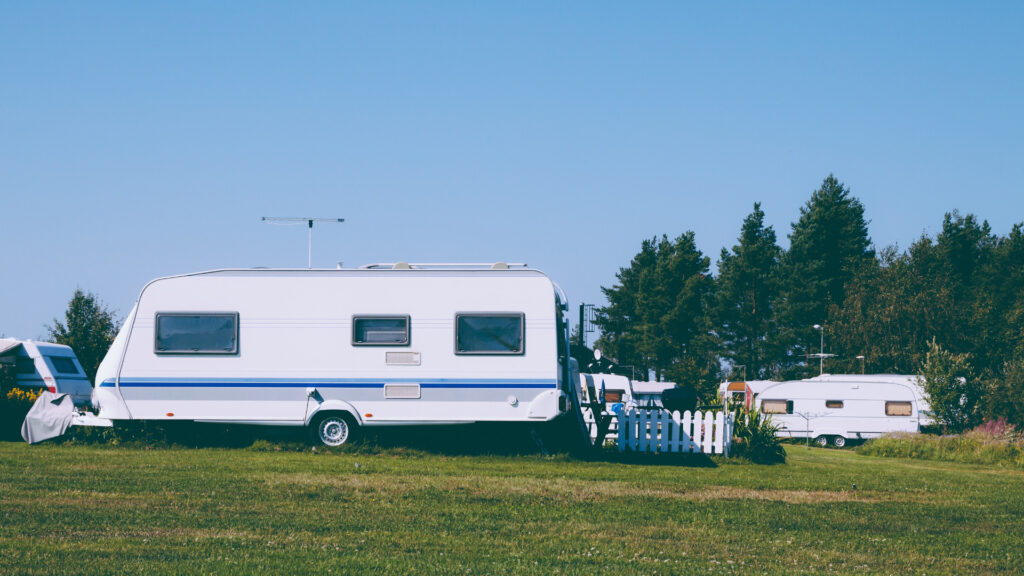
How to Keep Your RV Looking Nice
If you plan to stay in RV parks and campgrounds for years to come, you need to keep your RV looking nice. Here are a few things you should be doing to your RV, so it stays looking new.
Wash/Wax Regularly
One of the best ways to keep your RV looking nice is to wash and wax it regularly. The frequency necessary to keep it looking good will depend on how often and where you use it. If traveling in it full-time, you may need to wash it every month or two. However, a few times a year can do the job if you’re a recreational RVer. This can help significantly in some cases if you want to avoid problems with the RV 10-year rule.
You want to keep the dirt and debris off your rig. Bug guts can eat away at the protective layers on your camper, leading to damage down the road. Consistency is key when it comes to keeping it clean, so make sure you don’t put off washing and waxing it.
Do Regular Maintenance
Keeping up with your RV’s maintenance is critical. This includes inspecting the exterior seals and climbing up on the roof too. You may want to put off repairs and maintenance until later, but doing so regularly keeps your RV looking good.
Most RV manufacturers have maintenance schedules they recommend owners follow. Following these schedules and staying on top of repairs will help ensure your RV remains in good condition functionally and aesthetically.
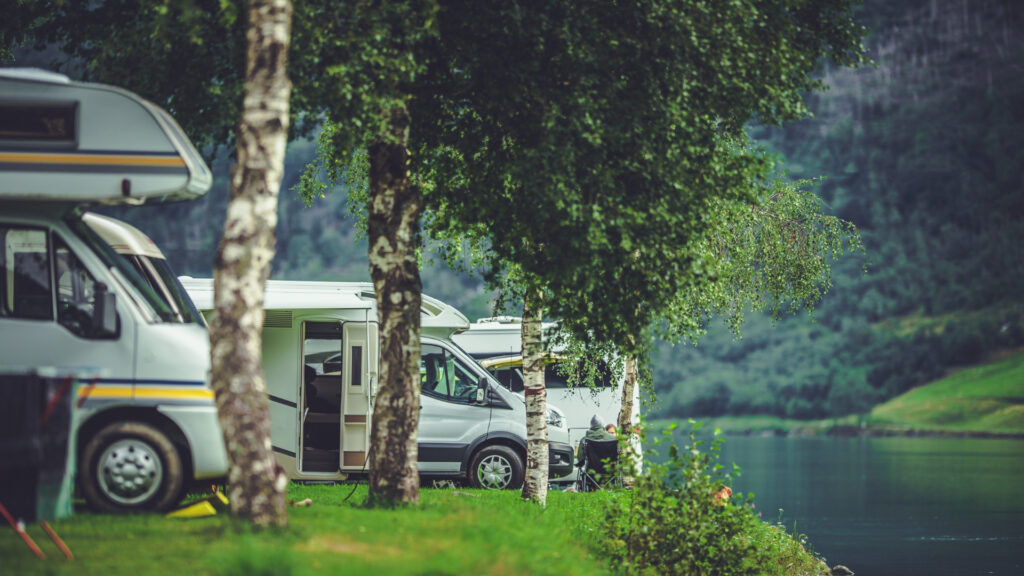
- RV ROOFING USE: Lap sealant is sun-ray stabilized to avoid spoiling and discoloration; Plus, it will not stain or...
- COLOR: White hue for stylish and beautiful RV roof
Store It Properly
Where and how you store your rig will help it stay in good condition. If it sits out in the intense sun when not in use, you’ll want to keep protective wax on it. This helps prevent decals from cracking and fading due to sun damage. Damaged decals can age your RV and make it harder to get around a 10-year rule.
Covered or indoor storage is always the best for keeping your RV looking new. However, these can be very costly and not readily available for everyone. They’re the way to go if you can find one and afford it.
Keep in Mind: Hate storing your RV? You may want to consider an RV Barndominium to provide your RV shelter at your home!
You Can Still Camp in an Old RV
If you have an old RV, the 10-year rule can feel annoying. However, plenty of campgrounds will still accept you, your old RV, and your money. There’s no use getting into a heated argument with staff over the rule; it won’t do you any favors. When in doubt, call ahead to avoid any potential issues at check-in and to ensure you have a smooth experience. Are you a fan or hater of the RV 10-year rule?
Last update on 2024-07-26 / Affiliate links / Images from Amazon Product Advertising API








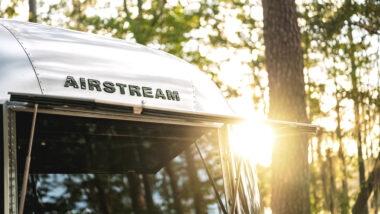
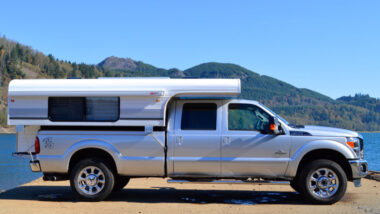
Wouldn’t want to stay in campground where people think they superior to others because of newer rig